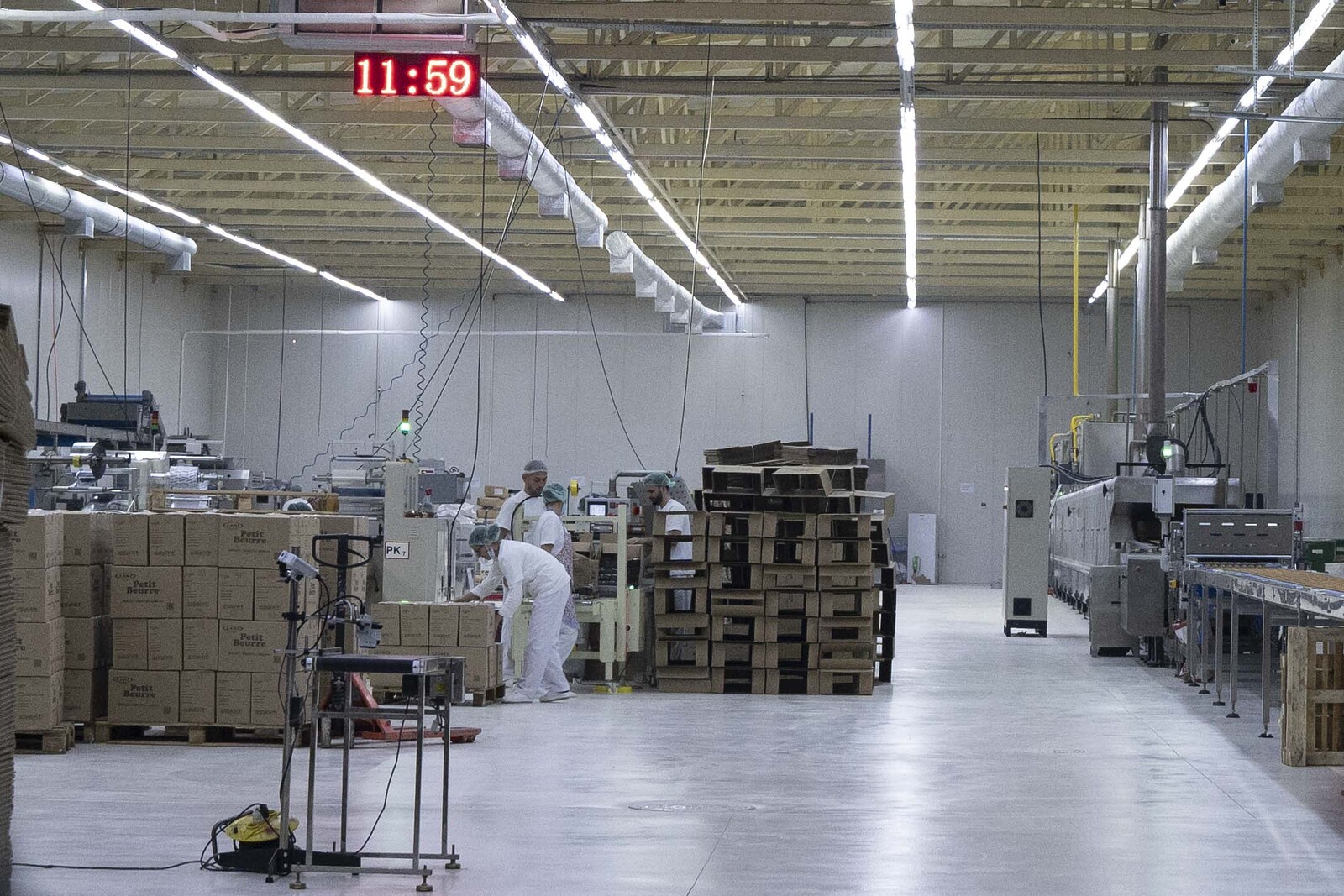The Echoing Silences of Metal and Skin
April 20–November 24, 2024
Museo Storico Navale della Marina Militare Riva S. Biasio
2148 30122 Venice Italy
Italy
kosovopavilion.biennale@gmail.com
The Pavilion of the Republic of Kosovo at the 60th International Art Exhibition—the Venice Biennale will present the sculptural installation The Echoing Silences of Metal and Skin, which addresses feminized labor and workplace inequality. Investigating the joint deindustrialization of the economy and deregulation of the labor market, Doruntina Kastrati encounters the (im)material forms of precarious employment in light industries in the aftermath of the 1999 Kosovo War, a period marked by a radical and abrupt transition from a socialist to free-market system. Partaking in wage labor has granted women a measure of financial independence and social enfranchisement. Alas, far from being emancipatory, the feminization of labor in industries like food production has perpetuated traditional gender roles. Further, since such jobs offer dim prospects for upward mobility, this development has rendered women economically vulnerable and pushed them to the political margins.
The Echoing Silences of Metal and Skin brings women’s narratives into public view. The project draws on oral histories that the artist conducted with female employees of a Turkish delight factory in Prizren, Kosovo’s second largest city and the artist’s hometown. These women produce approximately ten thousand boxes of the titular sweets on a daily basis. Their work at the factory is repetitive and performed from a standing position. Nearly one third of the women workers at this factory undergo knee replacement surgery. The metal objects that are implanted in their knees are traces of the long hours they work for low wages. Intending to prompt critical reflection on why and how exploitative labor practices have persisted, the artist engages with the embodied characteristics of materials, particularly metal.
The installation consists of four freestanding sculptures modeled after the shells of different types of nuts that are used as ingredients in Turkish delights. Activated by a sound, the sculptures build a distinctive rhythm in the exhibition space. Made from various metals, they simultaneously allude to surgical implants and industrial manufacturing. Through her choice of materials, Kastrati recreates the machinic coldness of the Turkish delight factory and the eerie coolness of the foreign metal on the workers’ knees. Charged with symbolic meaning while referencing the estrangement of working-class women, the pavilion’s constituent parts honor first-person narratives and create incisive associations.
The Echoing Silences of Metal and Skin includes a research-based publication that features oral histories with former employees of the Turkish delight factory in Prizren. The interviewees are Fitnete Veselaj Kastrati, Shaije Dulaku, and Mimoza Mici. Their narratives are accompanied by photographic documentation by Majlinda Hoxha. Designed by Nita Salihu Hoxha—Studio Permanent.
The exhibition catalog will be published after the pavilion’s official openning. It will include texts by Erëmirë Krasniqi, Dita Dobranja, and Adam Szymczyk as well as a conversation between Doruntina Kastrati and Pınar Öğrenci. The catalog will be printed and bound in Estonia by Tallinna Raamatutrükikoda and distributed by Mousse Publishing. Designed by Ott Kagovere.
The artist
Doruntina Kastrati is a visual artist based in Prishtina, Kosovo. Her artistic practice spans across sculpture, installation, and moving images. In 2014, she was awarded the Young Visual Artist Award from the National Gallery of Kosovo, and she won the Hajde x 6 Award from the Hajde Foundation in 2017. She was a resident at the International Studio and Curatorial Program (ISCP) in New York in 2015, a resident at Art House in Shkodër in 2018, and at Initiators in Athens in 2018. Her work was recently shown at Eugster Belgrade, A picture of pistachios destroying the railroad tracks to cut off the path of delights (2023); Ring The Bells My Land at Manifesta 14, Prishtina (2022); Temel at Hessel Museum, New York, (2022); Life without buildings at ETH Zurich, (2022); Here (Air Carries Poison But Yet We Breathe) at ChertLüdde, Berlin (2021), What if a Journey, Autostrada Biennale, Prizren (2021); Bigger than Myself—Heroic Voices from ex Yugoslavia, MAXXI Museum, Rome (2021); Not Fully Human, Not Human at All at Kadist Foundation, Paris, and Kunstverein Hamburg, Hamburg (2021-2022); Tirana Patience, National Gallery of Arts, Tirana (2020); Public Heroes and Secrets, The National Museum of Kosovo (2020), among others.
Curator: Erëmirë Krasniqi
Commissioner: Hana Halilaj, The National Gallery of Kosovo
Organizer: Ministry of Culture, Youth and Sport of the Republic of Kosovo
Publication and catalog editor: Erëmirë Krasniqi
Composition and sound installation: Paul Hauptmeier and Martin Recker
Architect: Okan Xhemaili
Exhibition producers: Giovanni Giacomo Paolin and Elena Graglia
Press inquiries
Zaida Violan, Bureau N, International Press and PR, zaida.violan [at] bureau-n.de
Rina Meta, Communications Coordinator, metarina [at] gmail.com



